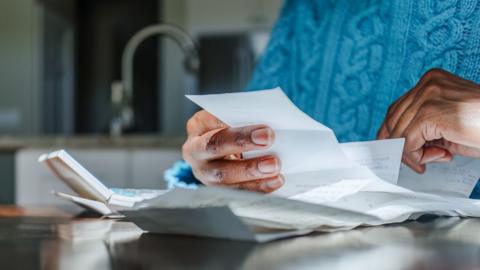Pip is paid to more than 3.6 million people who have difficulty completing everyday tasks or getting around as a result of a long-term physical or mental health condition.
There are two elements - a daily living component and a mobility component. Claimants may be eligible for one or both.
Daily living covers areas such as requiring help with preparing food, washing, reading and managing your money. The mobility element includes physically moving around or getting out of your home.
Applicants are scored on a points system based on their ability to carry out everyday tasks and on their mobility. Those who score 8-11 points in total receive the standard rate of Pip, and those who score 12 points and over are eligible for the enhanced rate.
From November 2026, the government says applicants will need to score at least four points in one activity to receive the daily living component of Pip.
Eligibility for mobility payments will not be affected.
The payments for daily living are:
For mobility the payments are:
Pip is usually paid every four weeks and is tax-free. It does not change depending on your savings or income and does not count as income affecting other benefits, or the benefit cap. You can get Pip if you are working.
At present, the payment is made for a fixed period of time between one and 10 years, after which it is reviewed. A reassessment could come earlier if your circumstances change.
Under the changes announced by the government, there will be more frequent reassessments for many people claiming Pip. Many recipients could be affected.
However, those with the highest levels of a permanent condition or disability will no longer face reassessment.
Initially, it was thought Pip payments might not be increased in line with inflation for a year, but the government has said they will not be frozen or means tested.
Pip is paid in England, Wales and Northern Ireland.
There is a similar but separate benefit in Scotland called the Adult Disability Payment.
